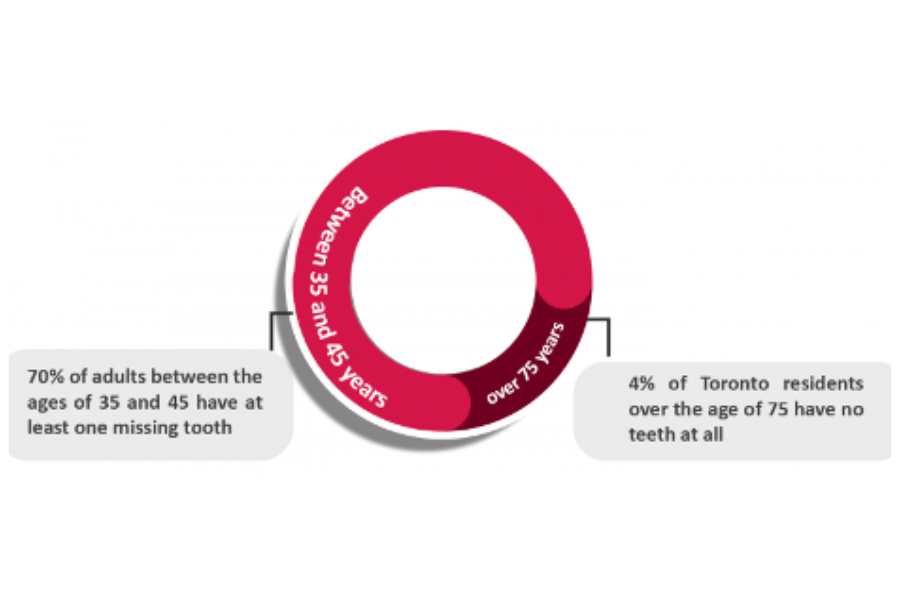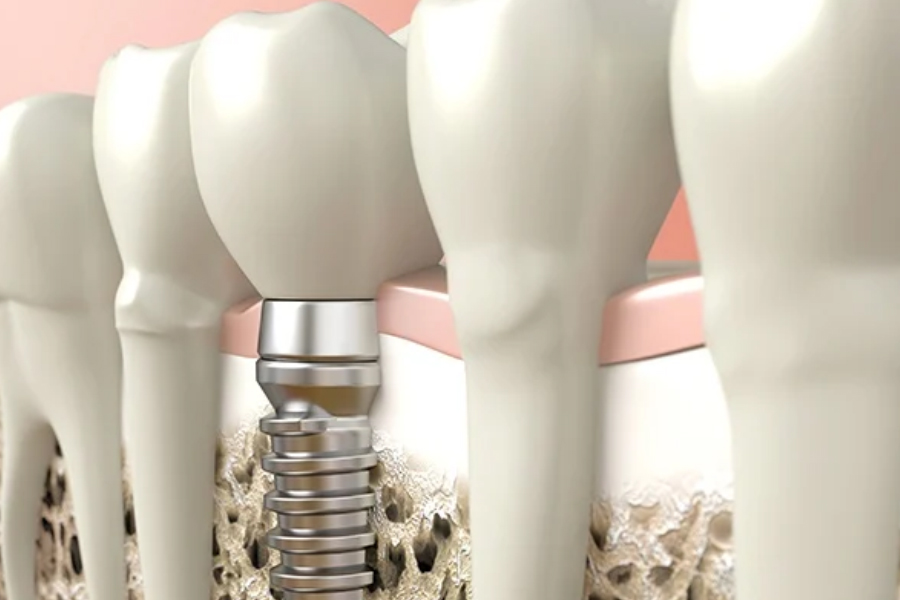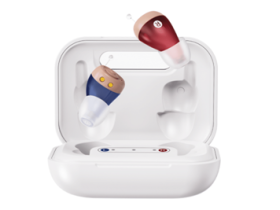If you lost one or more of your natural teeth, you don’t need to be worried as they can be ideally replaced by many options given by cosmetic dentistry. Having a missing tooth can be a nightmare as you won’t be able to talk, eat or smile like before and probably will struggle with future dental problems. We all may face having missing teeth due to different reasons. According to a trusted dentist offering dental implants in Vaughan, “approximately 4 percent of the Toronto population above the age of 75 has no teeth at all.” The following infographic published by 6006 Yonge Dental, shows this percentage. These days, people with missing teeth usually have many different types of tooth replacements to choose from and restore their beautiful smiles. One of these tooth replacements is dental implants that provide the same strength and function as your natural teeth. According to what an experienced implant dentist explains, the success rate of dental implants is around 90-95 percent which is pretty considerable. However, you can’t expect your dental implants to stay completely fine and flawless if you don’t maintain them correctly. Although dental implants are significantly beneficial and can meet your needs, they must be cared for to ensure they last a long time. One of the common complications associated with dental implants is peri-implantitis, which is caused by infected tissues around your dental implant. Find out how to prevent peri-implantitis from affecting your dental implants in this article.

What Are Dental Implants?
Dental implants are almost the most popular type of tooth replacement designed to meet the needs of people with missing teeth. Different parts of a dental implant, such as an artificial root and a crown, make it significantly steady and reliable, just like your natural teeth. After getting dental implants, you can bite, chew and talk perfectly as they won’t slip. Furthermore, dental implants are safe from cavities, unlike your natural teeth. However, there is still the risk of plaque buildup around your dental implants, leading to peri-implantitis, also known as gun inflammation around the implant.
Common Symptoms of Peri-Implantitis
The following signs may indicate a problem while you have dental implants:
- Inflamed and irritated gums around the implant
- Gum bleeding around the implant when you brush or floss
- Any significant changes with your dental implant you notice between dental visits
How Can Peri-Implantitis Be Treated?
It’s essential to contact your implant dentist whenever you notice any suspicious signs of peri-implantitis. Your implant dentist can treat the problem with the help of one of these procedures:
1. Mechanical removal:
The specific types of dentistry devices your implant dentist can use to remove bacterial plaque and restore the tissues.
2. Antibiotics:
You can use them in pill form or place them directly on the infected area.
3. Laster therapy:
Your implant dentist may use laser therapy to remove the damaging bacteria around your dental implant.
How to Care for Your Dental Implants?
If you maintain your dental implants properly, they can last several years without any severe problems. Remember to increase the quality of your oral hygiene and try to brush and floss your teeth at least twice a day. Quit your bad habits especially smoking, and visit your implant dentist once in a while to check if everything is okay.
Dental implants allow you to live your life with a beautiful, shiny smile!









Leave a Reply